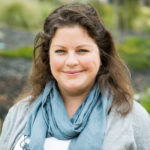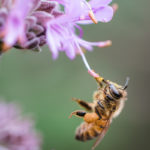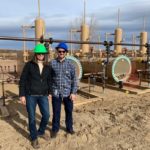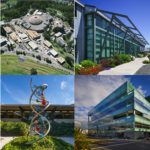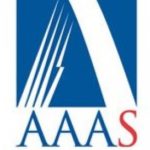The projects of 14 Biosciences Area scientists and engineers received funding through the FY20 Laboratory Directed Research and Development (LDRD) program. The funded projects span a diverse array of topics and approaches including: developing closed-loop plastics from biogenic feedstocks; reimagining a root system optimized for plant-microbe interactions; and creating computational tools for extracting macromolecular conformational dynamics. Lab-wide, 96 projects were selected from a field of 168 proposals. Biosciences Area efforts account for 18.5 percent of the $23 million allocated.
JGI Helps Analyze Division of Labor in Bee Gut Genomes
Honey bees are invaluable pollinators — cupids of the plant world facilitating the remixing of genes in the next generation of flowering vegetation. In return for their services, bees eat plant nectar and pollen. Nectar is an easily absorbable solution of sugars, but pollen contains plant cell walls, which have complex, branching chains of polysaccharides called pectin and hemicellulose. Honey bees rely on their gut microbiota to produce these enzymes to break down polysaccharides. An international team of researchers including JGI scientists has identified the major metabolic roles of constituent microbes. Read more on the JGI website.
Can We Reuse Polluted Water? Yes, Add Bacteria
Berkeley Lab and Colorado School of Mines scientists are collaborating on the development of a microbe-based system that could remove toxic compounds from wastewater produced by the oil and gas industries so it can be reused in other water-intensive sectors such as agriculture and energy production. Leading the Berkeley Lab half of the partnership are … Read more »
Biosciences Area FY19 LDRD Projects
The projects of 13 Biosciences Area scientists and engineers received funding through the FY19 Laboratory Directed Research and Development (LDRD) program. The funded projects span a diverse array of topics and approaches including the harnessing of microbiome data to uncover patterns of mutualism, evaluating radiobiological effects of laser-accelerated ion beams, improving bioenergy yield under drought stress, and the application of machine learning in tomogram segmentation. Lab-wide, 89 projects were selected from a field of 158 proposals. Biosciences Area efforts account for 15.07 percent of the $22.2 million allocated.
Two Bioscientists Among Those Named AAAS Fellows
Two scientists from the Biosciences Area, Sung-Hou Kim and Susannah Tringe, have been named Fellows of the American Association for the Advancement of Science (AAAS). They join fellow Lab scientists Allen Goldsten, faculty scientist in the Energy Technologies Area, and Kathy Yelick, associate laboratory director of Computing Sciences, in receiving the distinction of Fellow this year for “their scientifically or socially distinguished efforts to advance science or its applications.”
Was this page useful?


